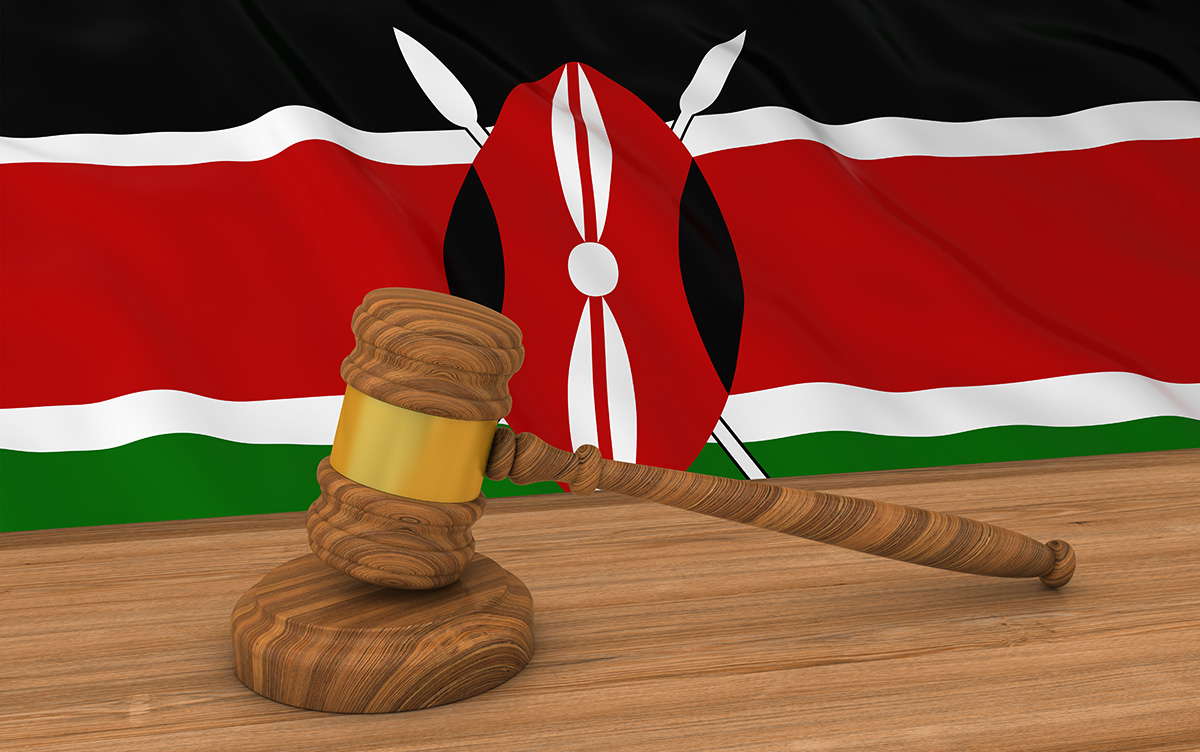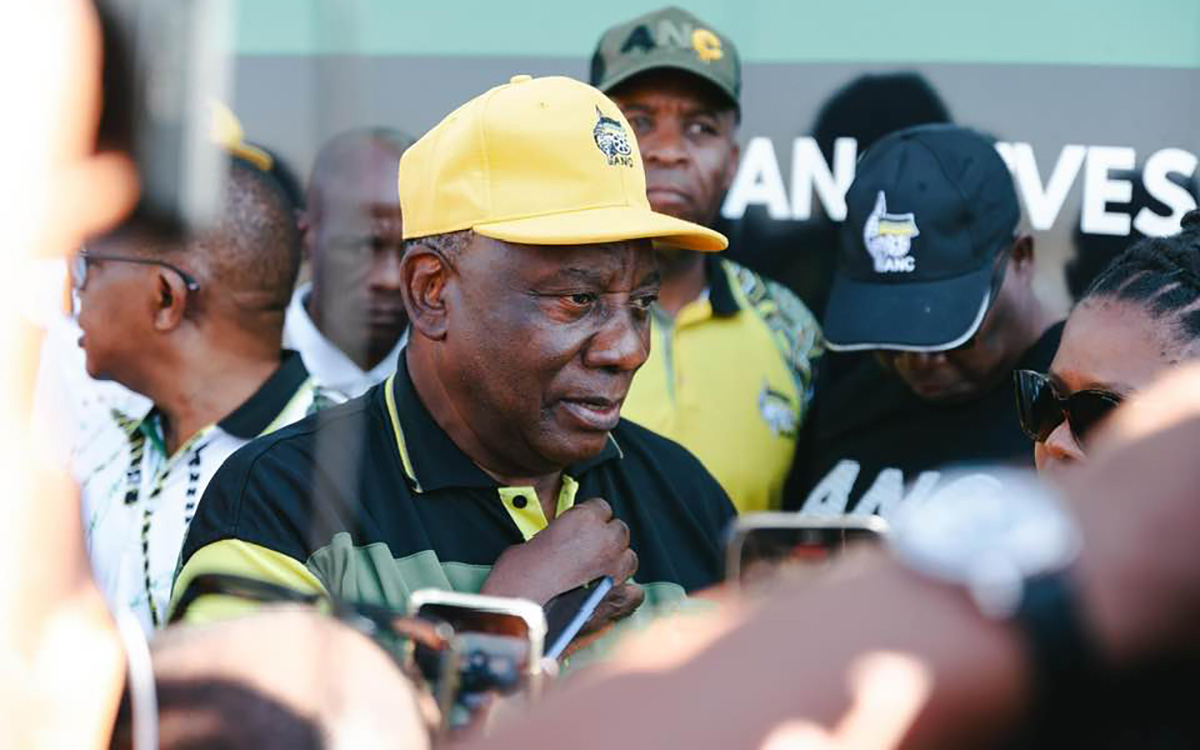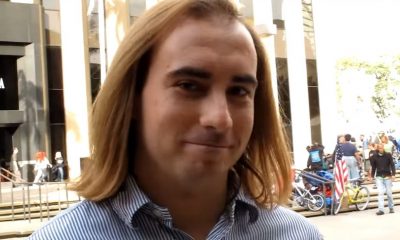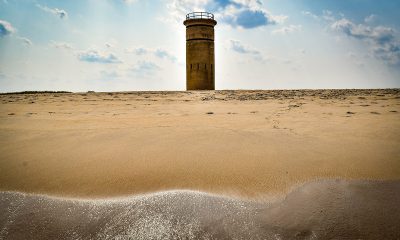Africa
Kenyan court bars homophobic protests
Mombasa High Court to reconsider case on July 24

The queer community in Kenya can breathe a sigh of relief after a Mombasa court on Monday ruled clerics, politicians, and anti-LGBTQ groups cannot hold homophobic protests or engage in incitement.
The Mombasa High Court’s ruling, however, is temporary until July 24 when the court in Kenya’s second-largest city determines a petition on the issue.
Two petitioners — Mr. JM and the Center for Minority Rights and Strategic Litigation — last October sued Police Inspector General Japhet Koome for allowing religious leaders and lobby groups to hold homophobic protests whenever a court rules in favor of the LGBTQ community.
The petitioners’ effort to demand a ban on anti-LGBTQ protests in Kenya was in response to a series of homophobic demonstrations, particularly in Mombasa, after the Supreme Court last September affirmed an earlier decision that allowed the National Gay and Lesbian Rights Commission to register as an NGO.
Mombasa High Court Judge Olga Sewe in her Monday ruling also directed the petitioners and the respondents, who include Koome, two anti-LGBTQ activists and a national lobby group dubbed the “Anti-LGBTQ Movement” that organized protests, to file their witness lists and counter statements within 14 days of the July hearing.
“Pending the hearing and determination of this petition, this Honorable Court (does) hereby issue a conservatory order restraining the 2nd and 5th Respondents from calling on or inciting members of the public to carry out extra-judicial killing, lynching, punishing, stoning, forcible conversion, or any other means of harming LGBTQ+ identifying persons and their homes,” Sewe stated.
She also stopped the “Anti-LGBTQ movement,” Koome and any state agency from any attempted “expulsion from Kenya or any party of Kenya of LGBTQ+ identifying persons or closure of organizations serving LGBTQ+ identifying persons.”
The court’s directives come after the Center for Minority Rights and Strategic Litigation led a protest on April 11 against the “anti-LGBTQ Movement”‘s invasion of Mvita Clinic in Mombasa that “hateful misinformation” reportedly sparked because the facility also serves queer people.
“Mvita Clinic, like all healthcare providers, serves the entire community,” CMRSL stated. “Targeting them for LGBTQ+ inclusion is discriminatory and an attack on the basic right to health. Everyone deserves access to healthcare, and we urge an end to the spread of lies. Let’s promote inclusivity and ensure Mvita Clinic remains a safe space for all.”
CMRSL in response to Osewe’s ruling said it was a “major win for safety and equality in Kenya” because it allows the LGBTQ people to live with “greater peace of mind.”
The Initiative for Equality and Non-Discrimination, an LGBTQ rights group, meanwhile lauded the court’s decision as a reprieve to homophobic attacks on the queer community.
“There is some reprieve given the security incidents we witnessed during the protests on Sept. 15 last year,” INEND Communications Officer Melody Njuki told the Washington Blade.
“We had rescued LGBTQ+ folks in Mombasa, Kilifi, and Lamu, due to security incidents caused by the hatred the anti-LGBTQ movement mongered and the calling of violence towards people associated with the queer group and those identifying as members,” she added.
PEMA Kenya, a Mombasa-based gender and sexual minority organization, also applauded the court’s temporary injunction, describing them as timely in protecting the LGBTQ community against all forms of homophobic attacks.
“We welcome the ruling and we believe it will impact our members who for some time felt robbed of the freedom to express themselves,” PEMA Kenya director Ishmael Baraka told the Blade.
The Nature Network, a rights organization for refugees living in Kenya, also welcomed the Monday ruling which it termed “a positive step showing the courts’ commitment to upholding human rights for all.”
“Anti-LGBTQ Movement” Chair Salim Karama, however, declined to respond to the Blade’s questions about the ruling until determination of the petition’s status. He noted the organization is waiting for their lawyer to speak with them about the decision and the filing of counter statements that Sewe ordered.
As LGBTQ rights groups seek the queer community’s protection in Kenyan courts, parliament, on the other hand in is set to consider a petition that notes what it describes as the proliferation of homosexuality in the country.
National Assembly Speaker Moses Wetang’ula on Feb. 27 referred the petition to the relevant parliamentary committee for inquiry after MP Ali Mohamed, a member of the ruling party and a vocal LGBTQ rights opponent, presented it in the National Assembly, the lower house of the Kenyan parliament, on behalf of a group of more than 70 Kenyans and religious organizations opposed to homosexuality.
Africa
Kenyan advocacy group offers safety tips to LGBTQ hookup app users
Blackmail, kidnappings and assaults are commonplace

The growing cases of queer people in Africa becoming victims of blackmail, physical and sexual assault from online hook-ups have compelled a Kenyan LGBTQ rights group to work with the community to help it stay safe when using digital platforms.
Upinde Advocates for Inclusion held a 3-day training from May 11-14 to teach queer people about unsafe social media and dating app hook-up practices that suspected homophobes exploit.
The Mombasa-based group of which Lizzie Ngina is executive coordinator noted lesbian, bisexual and queer women, and gender non-conforming people are the most frequent targets online and on Grindr and other dating apps.
“LBQ women and GNC persons confront major challenges in terms of digital security and data protection, freedom of expression, assembly, association, speech, privacy, protest and online organizing,” Upinde Advocates for Inclusion stated.
Although the digital platforms were seen as convenient meet-up places for LGBTQ people in overcoming physical anti-gay attacks, Upinde Advocates for Inclusion said anti-gay discrimination, marginalization, gender-based violence, misinformation, and disinformation limits LGBTQ and gender non-conforming people from accessing the social media services.
Queer people while using dating apps and social media for hookups were, however, urged to first trust their intuition before deciding to have a physical meeting with people with whom they chat online.
“If it does not seem like someone you are messaging is using their true identity, they probably are not. In this case, do not agree to meet them in person,” Upinde Advocates for Inclusion warned.
It asked LGBTQ users to ensure the first in-person meeting with someone they met online is in a public place that is queer-friendly and known to them. Upinde Advocates for Inclusion also advised queer people to inform their trusted friends or family about their meeting plans, the place, and how long they expect it will take place in order to ensure someone can intervene if something goes wrong.
“Organize your own means of transport to and from the meeting, and do not accept a free ride from a stranger,” the group warned. “Also, do not move to a secondary location if you feel unsure during the meeting.”
Upinde Advocates for Inclusion also warned queer app users to remain sober during the meeting and cautioned against leaving their food or drinks unattended in order to avoid any potential risks associated with spiking.
The National Gay and Lesbian Human Rights Commission, Ishtar-MSM and other Kenyan LGBTQ advocacy groups that offer legal aid to queer people last year reported about 100 cases of blackmail, extortion, physical and sexual assault against their members by suspected homophobes they met on dating apps and social media.
The two organizations this month noted 10 of the cases are expected before courts soon, although they said most victims of anti-gay attacks don’t report them to the authorities because they fear further stigmatization and discrimination. Consensual same-sex sexual relations also remain criminalized in Kenya.
Targeting the LGBTQ community on digital platforms and dating apps is not unique to Kenya.
The Washington Blade last month reported it is still risky for queer Nigerians to search for a partner or to use gay dating apps infiltrated by homophobes who lure them to meet in-person and then rob or assault them. South African authorities last year arrested four men in connection with the targeting of Grindr users.
LGBTQ Kenyans urged to protect themselves at protests
Upinde Advocates for Inclusion in their workshop taught participants about the signs that suspected homophobes or their associates have compromised their devices. They include unusual activities on their cell phones that include calls with untraced history, disappearing blank messages, blinking screens, high data consumption, devices that overheat when not in use and echo when picking calls and quick battery depletion with minimal use.
“If you suspect your device is compromised, do not format or reset it, log out all the accounts, find an alternative device to use, change the password for the accounts on the device, and do not connect the gadget to any other devices,” Upinde Advocates for Inclusion warned.
The group also taught queer people about how they should conduct themselves when taking part in street protests amid anti-gay attacks. Upinde Advocates for Inclusion advised them to always to identify safe alternative routes to and from the protests, wear comfortable running shoes, and always carry a spare outfit that is not LGBTQ-specific.
“If you are in a group, always strategize on having a meeting point should there be any danger or should you get separated,” the group stated. “Also, try to split up responsibilities among the group so that one person can’t be targeted.”
Upinde Advocates for Inclusion also urged queer people to always leave a protest before it ends, to have an emergency contact on speed dial or memorize it for immediate help in case of danger and to always to keep in touch with a trusted contact who is familiar with the protest but not attending it.
Africa
Ugandan president meets with US ambassador
Unclear whether William Popp raised Anti-Homosexuality Act

Editor’s note: This article has been updated.
Ugandan President Yoweri Museveni on May 10 met with U.S. Ambassador to Uganda William Popp.
Museveni in a post to his X account described the meeting, which took place at his official residence in Entebbe, as “productive.”
“We discussed key issues, such as the upcoming Census, regional peace, and socio-economic development. I emphasized the need for an inclusive census for informed decision-making,” said Museveni. “I also shared my views on fostering peace and security in the region. Additionally, we discussed opportunities in transitioning our population from a rural-based pre-capitalist society to industry and services.”
I had a productive meeting with the US Ambassador to Uganda, H.E William Popp, at State House Entebbe. We discussed key issues such as the upcoming census, regional peace, and socio-economic development. I emphasized the need for an inclusive census for informed decision-making.… pic.twitter.com/yHRZPHEltZ
— Yoweri K Museveni (@KagutaMuseveni) May 9, 2024
A statement the Ugandan Foreign Affairs Ministry released noted Popp “conveyed his appreciation for the president’s valuable time and wise counsel.”
“He also acknowledged President Museveni’s extensive knowledge and experience, underscoring the importance of their continued dialogue in fostering a strong and mutually beneficial relationship between the United States and Uganda,” said the statement.
The statement further notes Foreign Affairs Minister Jele Odongo; Defense and Veterans Affairs Minister Jacob Oboth-Oboth; Rosette Byengoma of the Defense Ministry; and Lt. Gen. Samuel Okiding, who is deputy chief of the Ugandan defense forces, attended the meeting.
The meeting took place nearly a year after Museveni signed the Anti-Homosexuality Act that, among other things, contains a death penalty provision for “aggravated homosexuality.”
The U.S. has sanctioned Ugandan officials and removed the country from a duty-free trade program. The World Bank Group also suspended new loans to Uganda in response to the Anti-Homosexuality Act.
The Ugandan Constitutional Court last month refused to “nullify the Anti-Homosexuality Act in its totality.” A group of Ugandan LGBTQ activists have appealed the ruling.
It is not clear whether Popp raised the Anti-Homosexuality Act with Museveni during their meeting.
“We do not discuss the details of private diplomatic engagements; however, we have regularly raised with the highest levels of Ugandan government U.S. government concerns about democratic space, rule of law, and respect for human rights for all Ugandans, including members of the LGBTQI+ community in relation to the 2023 Anti-Homosexuality Act,” a State Department spokesperson told the Washington Blade on Wednesday.
Africa
South African president signs new hate crimes, hate speech law
Advocates largely welcome new statute

South African LGBTQ organizations have welcomed a new law that seeks to combat hate crimes and hate speech.
President Cyril Ramaphosa on May 9 signed the Preventing and Combating of Hate Crimes and Hate Speech Bill that had been introduced in 2018.
According to the new law; the direct or indirect unfair discrimination against anyone on the grounds of age, albinism, culture, disability, ethnic or social origin, gender, HIV status, language, nationality, migrant, refugee status, asylum seekers, occupation, trade, political affiliation, conviction, race, religion, sex, sexual orientation, gender identity or expression, sex characteristics or skin color is a criminal offense punishable by a fine or up to eight years in prison.
“A hate crime is committed if a person commits any recognized offense under any law that is motivated by prejudice or intolerance based on one or more characteristics or perceived characteristics of the victim, as listed in the legislation or a family member of the victim,” said the president’s office. “The law also makes it an offense when speech material is intentionally distributed or made available in electronic communication, and the said person knows that such electronic communication constitutes hate speech.”
Crimen injuria, the unlawful and intentional impairing of dignity or privacy of another person under common law, was in place before the new law. Crimen injuria, which to extent protected some forms of hate against the LGBTQ community, is still active.
The Preventing and Combating of Hate Crimes and Hate Speech Bill, however, is more comprehensive in the sense that it particularly focuses on hate speech and hate crimes, and therefore makes it easier to seek legal recourse than under crimen injuria.
“As Out, we commend President Cyril Ramaphosa on the move that he has made in making sure that the rights of LGBTQ+ persons are protected. We, as Out, also hope that other African countries can learn from this historic milestone that all people are equal and that their rights should be protected,” said Out LGBT South Rights Human Rights Coordinator Sibonelo Ncanana.
Ncanana specifically applauded Deputy Justice and Constitutional Development Minister John Jeffrey and the working group that helped secure the bill’s passage.
“We hope that all government departments will enforce the mandate of the act,” said Ncanana. “We also hope that it will help in decreasing the amount of hate crimes that are happening in South Africa, create safer communities, and that LGBTQ+ people will find themselves safe.”
Ruth Maseko of Umndeni LGBTI Group and the Triangle Project said the new law creates a precedent of what constitutes hate crime and the repercussions.
“We are delighted at the passing of the bill after so many years, as it creates a legal definition of hate crimes,” said Maseko. “This now puts in place mechanisms for authorities to collect and report details about these incidents of hate for the effective monitoring, analysis of trends, and appropriate interventions that are needed.”
Maseko added that although the new law will aid in giving the courts a framework to work in when handling cases of hate, it will not really deter people from committing those crimes.
“The new law will provide quantitative and qualitative data as currently we have no way of telling how many of these crimes are committed. The only way we know, is when they are reported to a civil society organization or are reported in the media,” said Maseko.
“Although it will do nothing to change the attitudes of people who act out in these ways, the law does send out a message that hate crimes will not be tolerated in South Africa and will provide additional tools to investigators and prosecutors to hold perpetrators accountable for their actions,” added Maseko.
The law, however, does not consider actions undertaken in good faith as part of hate speech. They include artistic creativity, performance or other form of expression, academic or scientific inquiry fair, and accurate reporting or commentary in the public interest.
It also excludes interpretation and articulating or espousing of any religious conviction, tenet, belief, teaching, doctrine or writing that does not advocate hatred or constitutes incitement to cause harm. The law also contains directives on training and other measures to be undertaken by the South African Police Service and the National Prosecuting Authority to ensure effective processing of the newly defined crimes.
-

 Autos3 days ago
Autos3 days agoSeductive sport-utes: Buick Evista, Subaru Outback
-

 Congress3 days ago
Congress3 days agoHouse ethics complaint filed over GOP staffer’s anti-trans email
-

 Real Estate3 days ago
Real Estate3 days agoYes, there are other coastal Delaware towns besides Rehoboth
-

 State Department4 days ago
State Department4 days agoState Department travel advisory warns of potential anti-LGBTQ violence










